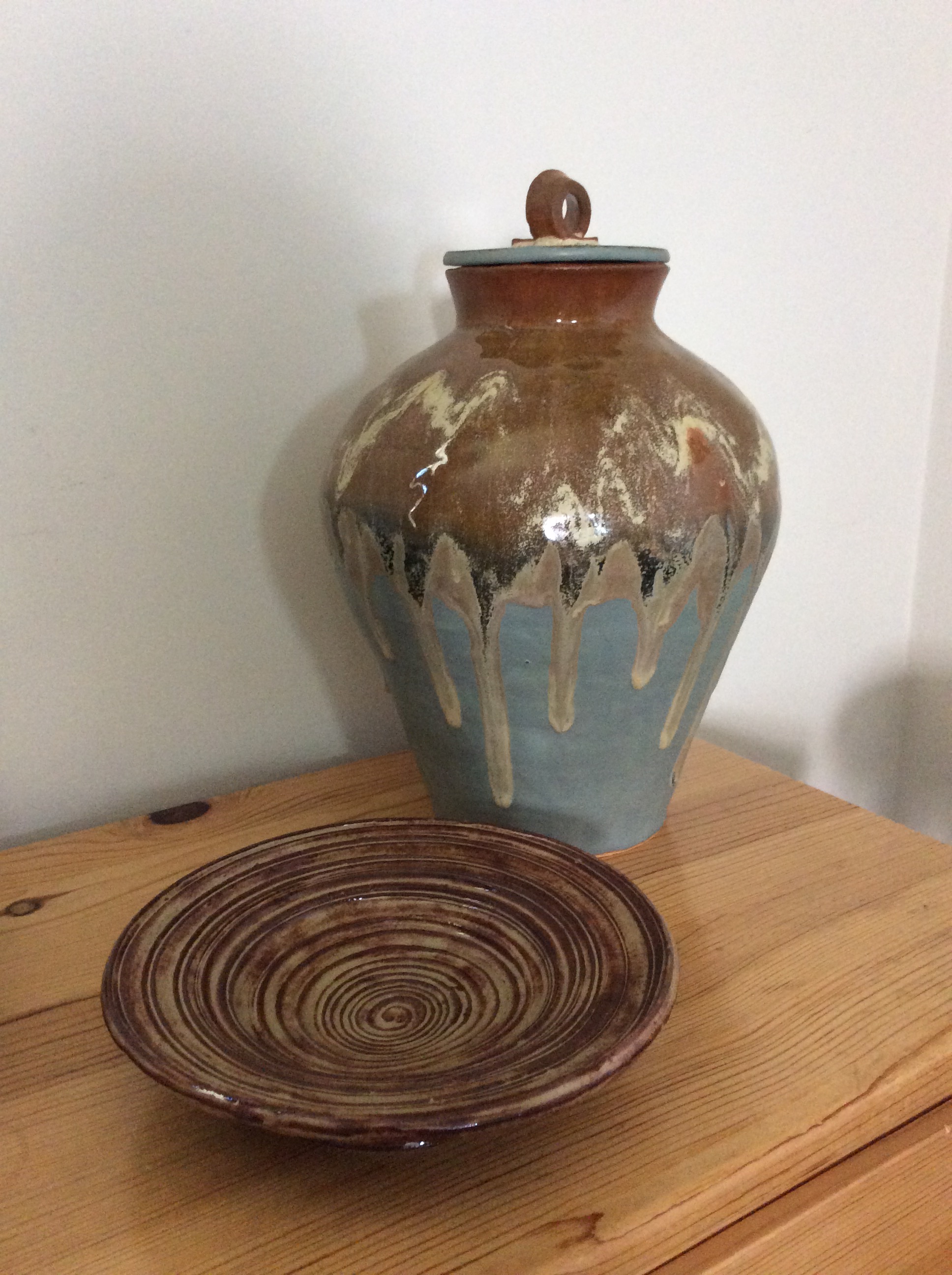 By Nancy J. Unks
By Nancy J. Unks
You may have seen a video on YouTube. Or perhaps you visited a historic site last summer and watched, enthralled, as a demonstrator in period costume threw a clay pot on a kick wheel, transforming a spinning blob into an object of beauty. It’s a craft that’s been practiced for millennia. The Bible mentions potters in both the Old and New Testaments. Mostly, it likens us humans to clay in the hands of God, the potter, who makes us into the vessels he wants. And it chides us for questioning God’s sovereignty over his work when we don’t like what he’s doing with us.
“Can the pot say of the potter, ‘He knows nothing’?” (Isaiah 29:16).
“Woe to him who quarrels with his maker” (Isaiah 45:9).
“But who are you, O Man, to talk back to God?” (Romans 9:20).
Well, here’s news that every potter knows: sometimes clay does talk back! That gray lump staring up from the wheel has a mind of its own. You want to make a vase; it doesn’t want to be any taller than a mug. You want a platter; it refuses to stretch larger than a salad plate. You abandon the wheel and roll some clay on a table to cut and fold into a square dish, but when you bend it, it cracks. So you make it into a flat tile, but it warps while drying.
Of course, God is the master potter. He knows how to remedy all these problems with all kinds of pots and all types of clay. Does that mean we’re doomed; we have no say in what we become? No. We may be like clay, but we are not clay. God also made us to be in relationship with him, and that’s a two-way thing.
“’Come now, let us reason together,’ says the Lord. ‘Though your sins be like scarlet, they shall be as white as snow,’” (Isaiah 1:18).
Sometimes we talk back. We complain. We lament. But that’s okay. When we take our objections, accusations, and doubts to God himself, he actually answers, showing us his loving concern. It happens slowly, over time, through his word, the Bible, as we seek to know God more and more, because “Anyone who comes to [God] must believe that he exists and that he rewards those who earnestly seek him” (Hebrews 11:6b).
What is the reward? It is that no matter what kind of fragile clay jars we become, we carry in our hearts a most valuable treasure—“the light of the knowledge of the glory of God, (which we see) in the face of Christ” (2 Corinthians 4:6).
